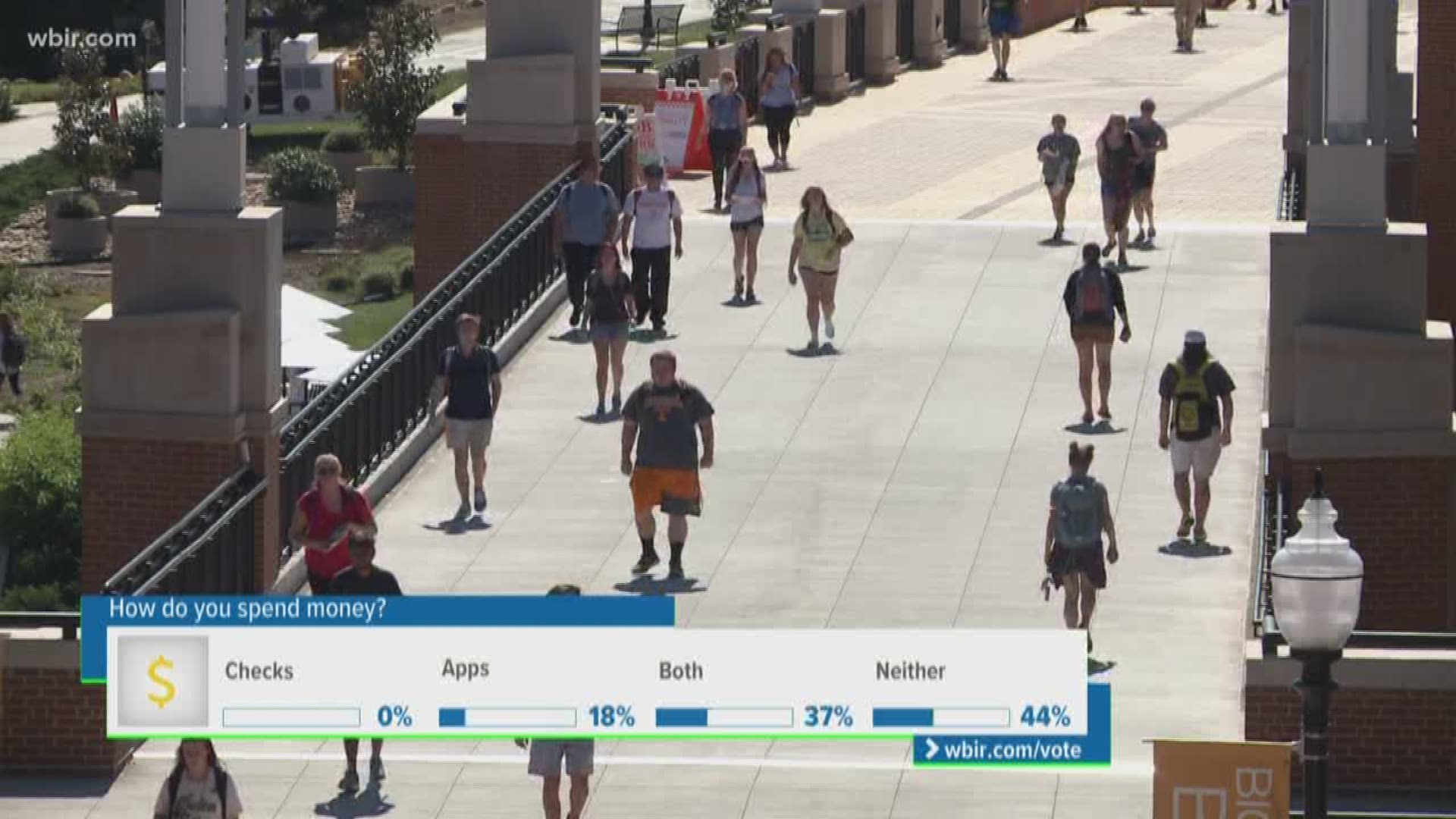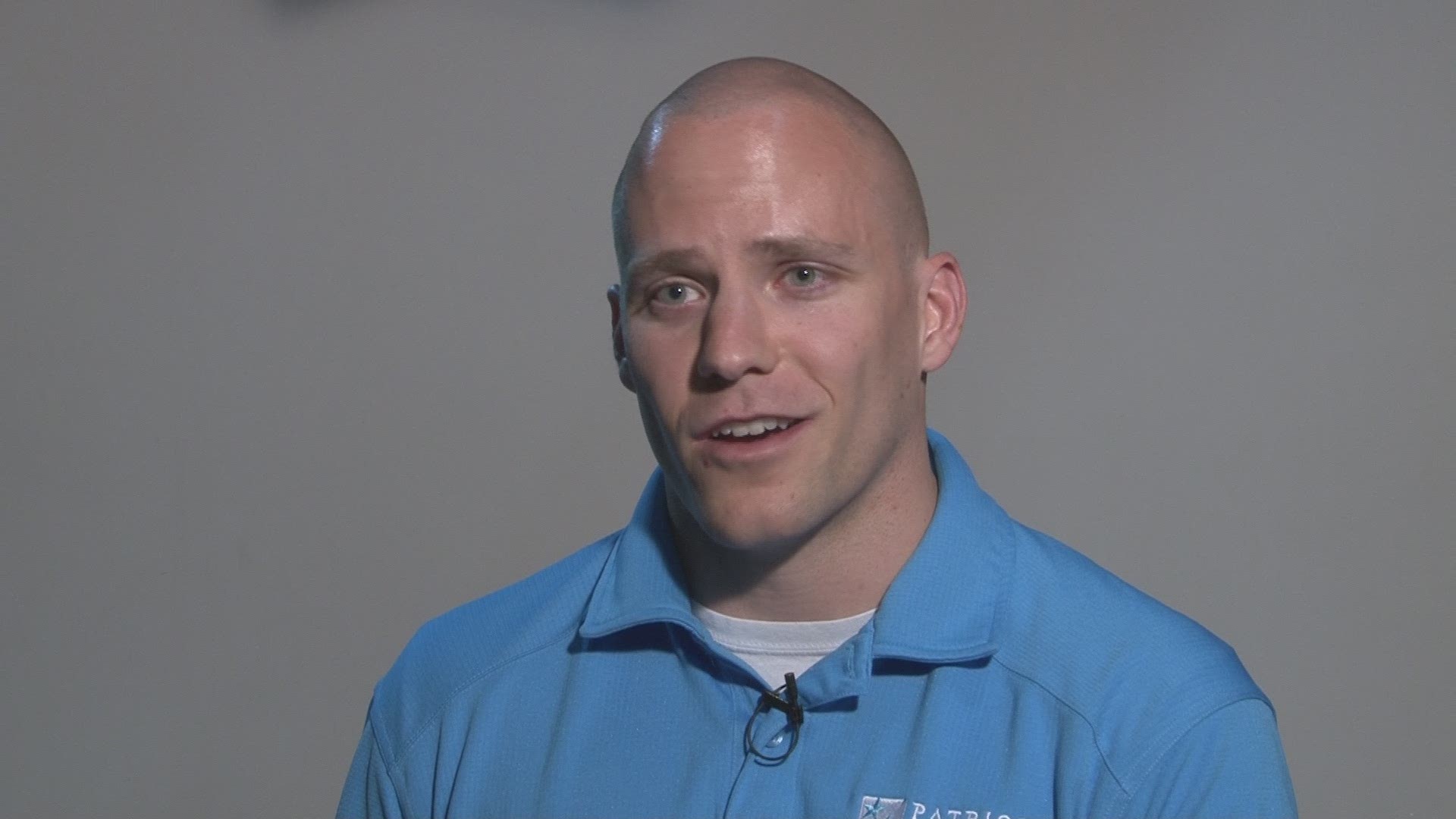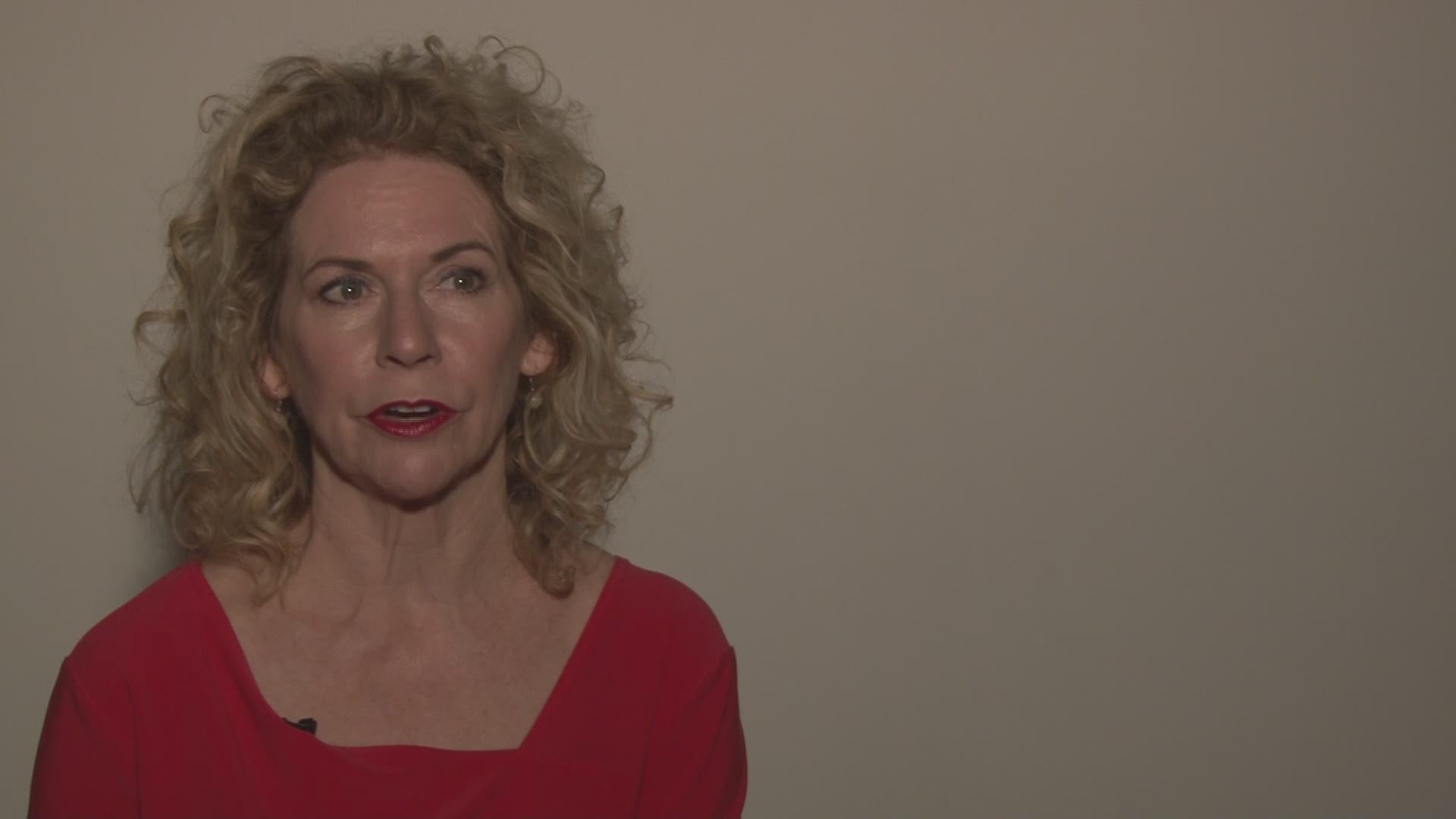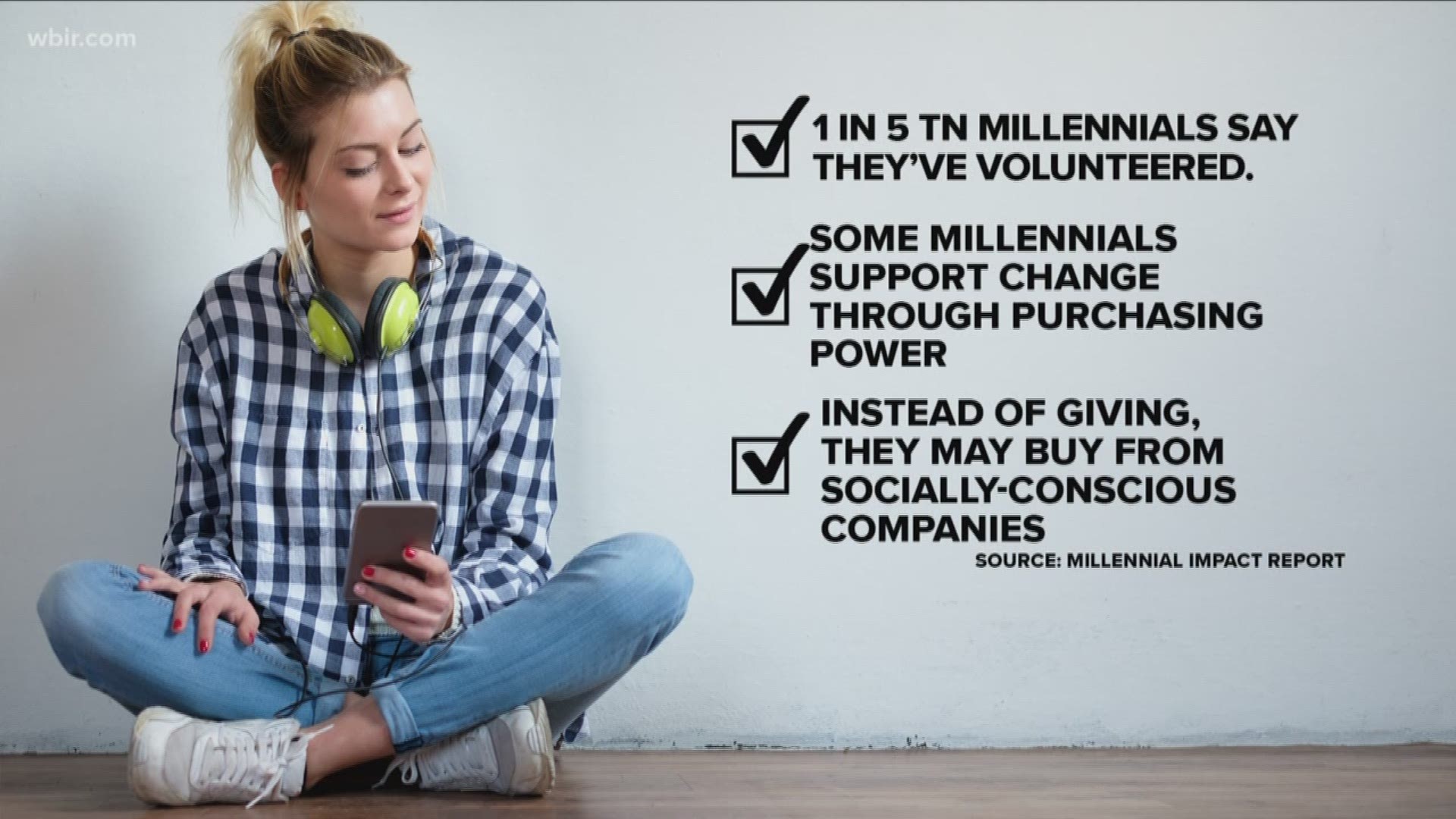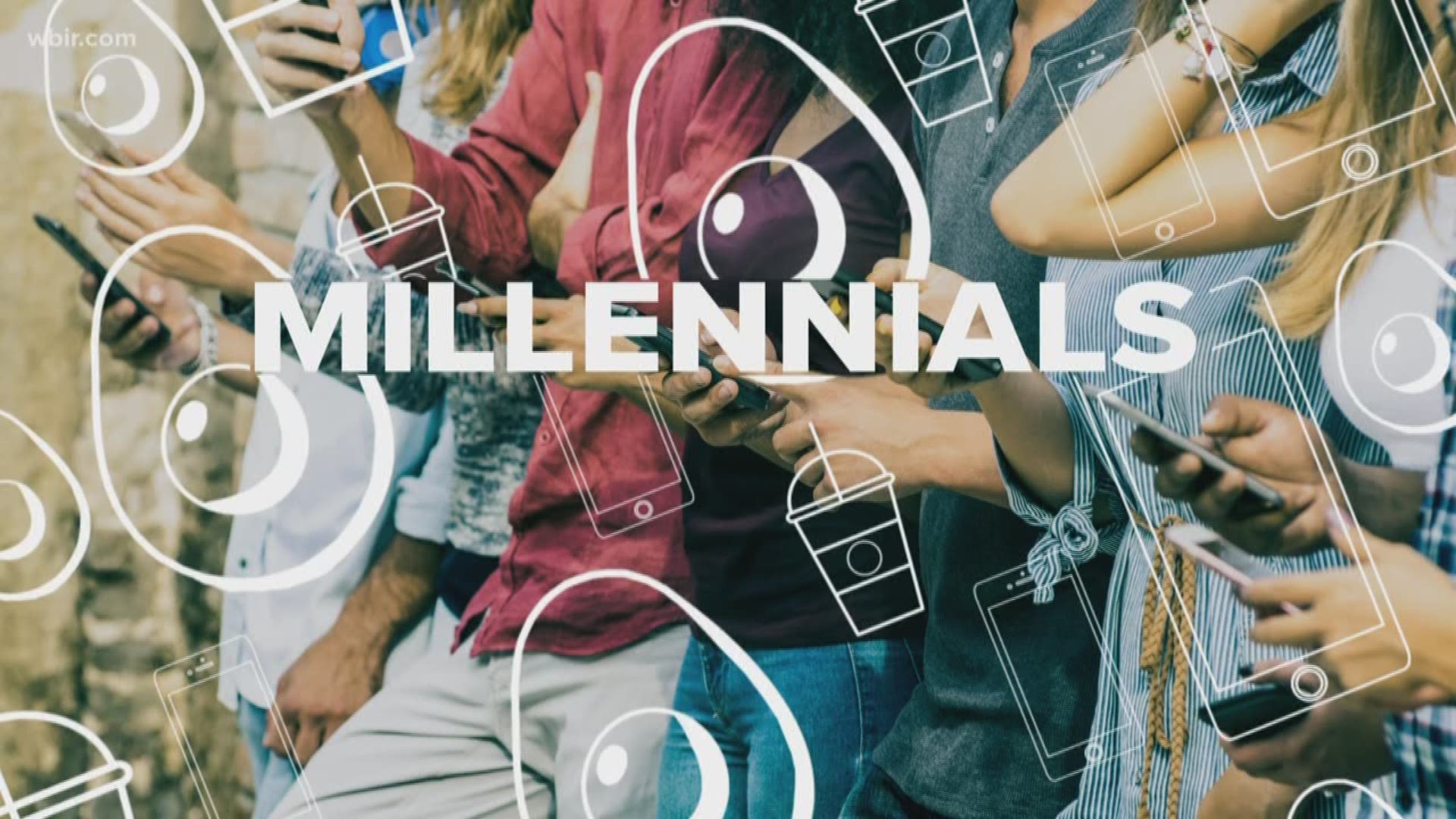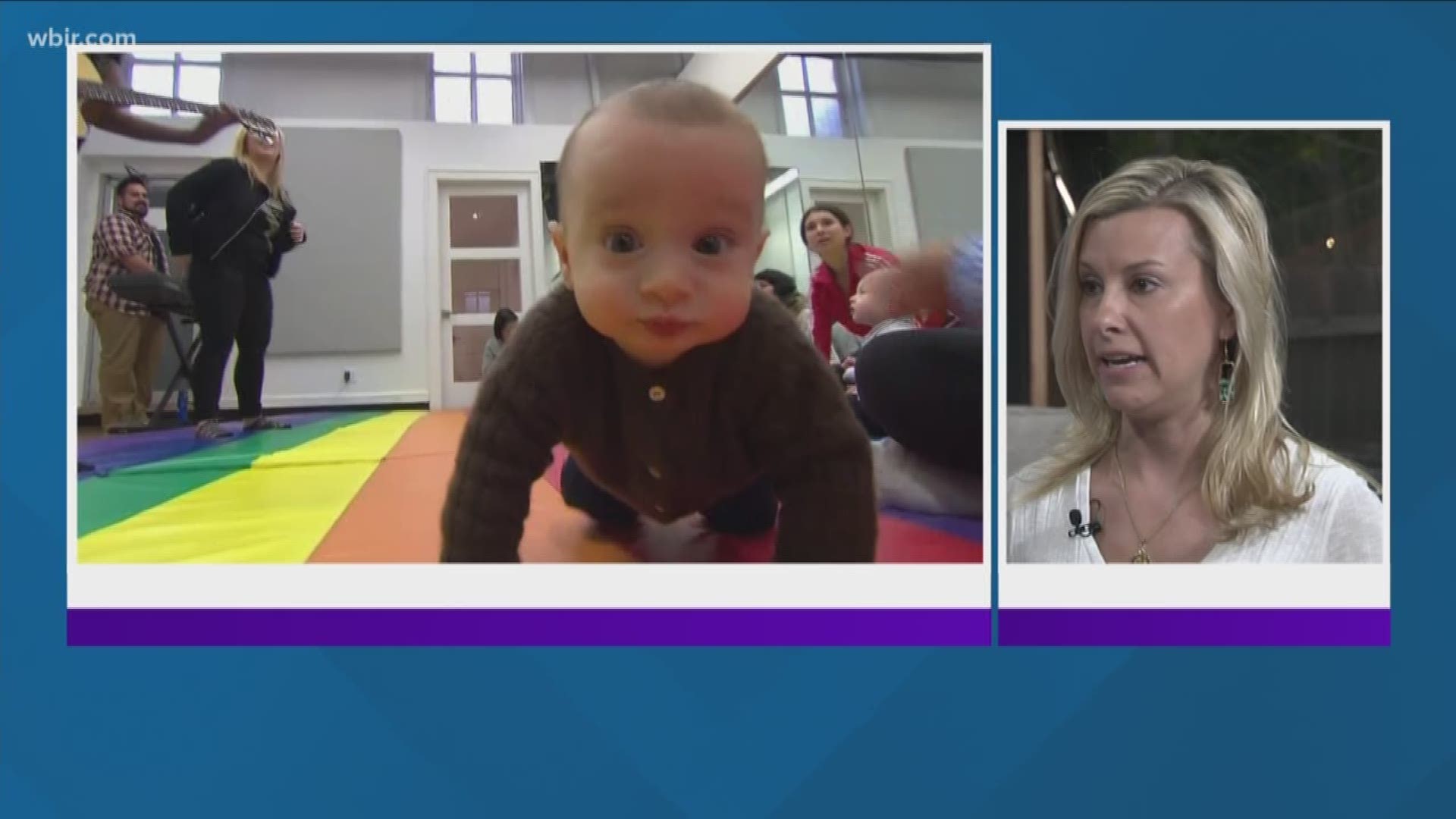Millennial Week: money, voting, giving, news, and parenting
Whether it's a family member, a coworker, or that person in front of you in the checkout line... odds are, you've had a run-in with a millennial that may not have painted the generation in the best light.
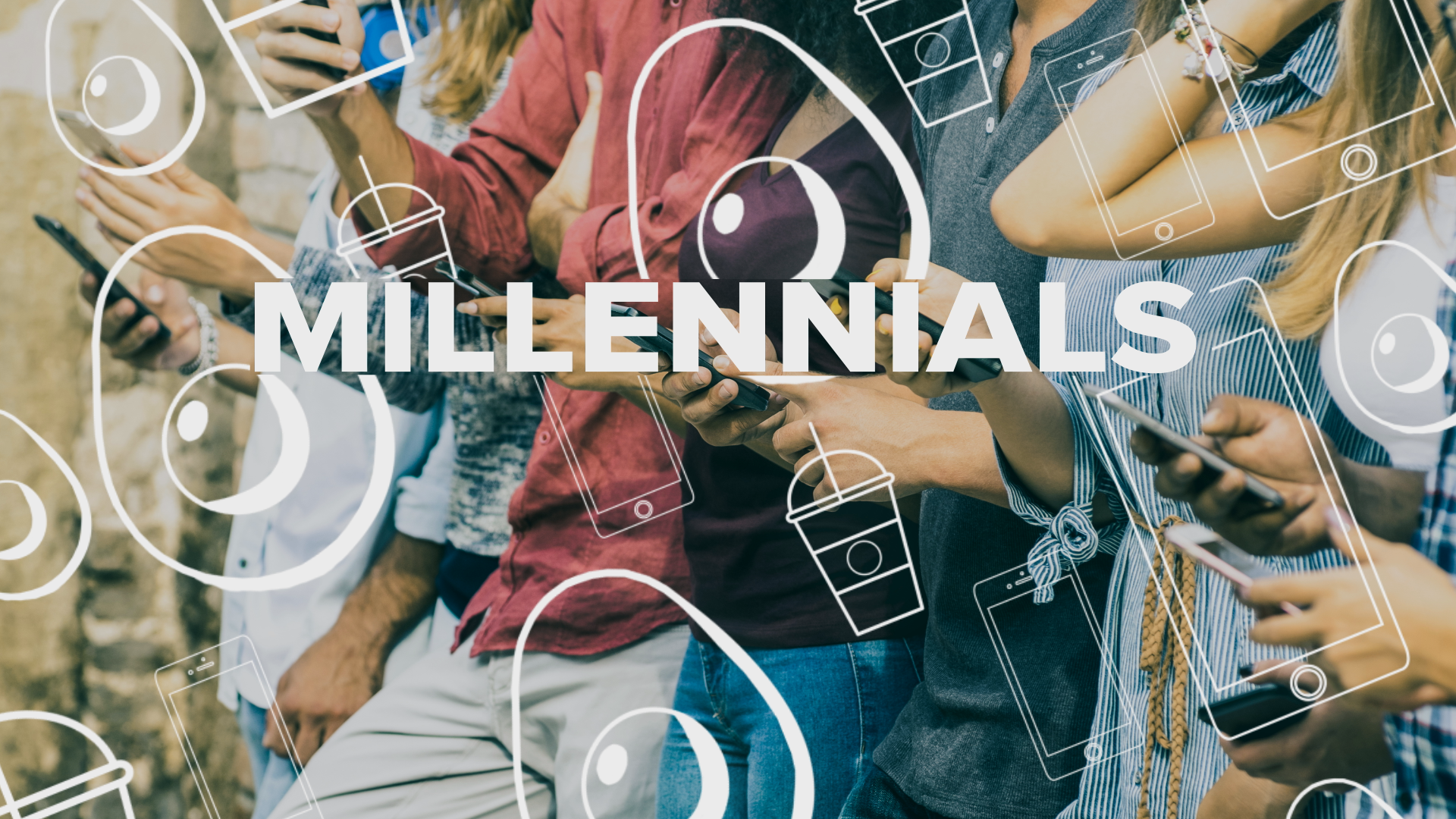
They're entitled. Tech addicted. They want it all and they want it now. Millennials.
Whether it's a family member, a coworker, or that person in front of you in the checkout line... odds are, you've had a run-in with a millennial that may not have painted the generation in the best light.
We're taking this week to set the record straight and to get your questions answered about the biggest generation in history.
So who are millennials?
Anyone born between 1981 and 1996 is a millennial, according to the Pew Research Center.
So, anyone within the ages of 22 and 37 fall into the category: Millennials. There are 75.4 million millennials, meaning that group even surpasses baby boomers. Now, if there's one way millennials affect us all, it's how they spend.
Despite stereotypes of avocado toast and spending in the moment, experts say most millennials are actually focused on saving but there are some hurdles.
The biggest one being the cost of higher education. College board says the average cost of tuition has more than doubled just from the time millennials first walked into college classrooms until now.
UT Finance Lecturer Suzan Murphy says it's not that millennials are spending recklessly but starting their adult lives with a deficit.
There's another hurdle for millennials as well. Members of earlier generations often choose to "save money for a rainy day".
Millennial Financial Planner Chris Brown says now it's about making the most of every day.
"They tell us we have to graduate, go get a job, get married and have kids... and then work really hard and when you hit 65 or 67 then you can retire. But for a lot of millennials, it's about living now and in the future," Brown said.
Digital Spending
Are millennials really getting rid of their checkbooks?
Another trend of the millennial era: digital spending. While this generation remembers dial up internet service...many are tech-savvy. With an app for everything, it's no wonder millennials are leaving the cash and checkbooks behind for an onscreen experience.
UT Finance Expert Laura Cole explains how millennials are shifting from checkbooks to apps.
Millennial Voting
In the past few years, the last millennials reached voting age.
A millennial impact study conducted last year found 65 percent of millennials reported voting in the 2016 presidential election.
That's 10 percent higher than America's eligible turnout as a whole. Keep in mind -- these were self reported numbers.
According to that same report, more than 70 percent of the millennials studied saw voting as a way to advocate for change. More than 3 quarters of those millennials say voting is your responsibility and 2 in 3 thought voting would lead to the change they want to see.
Millennial expert Erin Freeman says that mentality could change the way America votes.
"We are seeing the number of voter registrations declining, or the number of people that are actually going to the polls to cast their vote, millennials are seeing that it is important. So, hopefully moving into the future we'll see an increase in voter turnout," Freeman said.
Freeman says much of that involvement stems from millennials' desire to create change.
Giving & Volunteering
When it comes to giving back,1 in 5 Tennessee millennials say they've volunteered, according to the Corporation For National and Community Service.
Millennials seem to be changing the means of making a difference as well. While previous generations may have given more financially, millennials may be more likely to purchase specific products or goods that align with their beliefs.
Another millennial trademark: Choosing to work for a socially conscious company. Half of millennials surveyed say they are more likely to work for a company with good intent. Even more, 35 percent said they'd be willing to take a pay cut to work for that kind of business.
Millennial expert Erin Freeman says young workers are also looking for volunteer experiences in the workplace.
"Millennials are more inclined to work for a company that has a commitment to allowing them to do volunteer work outside the workplace," Freeman said. "Having the ability to do that is appealing to our millennial workers."
Compare that to past times where employees were more often expected to volunteer on their own time.
What are some groups in our community that work closely millennials to make Knoxville a better place?
How they get their news
"I get most of my news on my cell phone. I either use a news app or I will check twitter or Facebook or Instagram."
According to a Reuters survey in 2017, nearly 90 percent of those between the ages of 18 and 34 reported getting their news online.
Compare that to TV, which about 60 percent of that age group uses, or print, which is about one third, and 16 percent of people reported using social media alone.
In the U.S., about half of millennials surveyed said they turn to Facebook for news. About a quarter use YouTube. 1 in 5 use Twitter and a 1 in ten use Instagram.
Millennial Parenting
Raising a little one? Odds are, you're a millennial.
Millennials are anyone born between the early 1980s and the mid-90s...specifically between the ages of 22 and 37.
Many of those older millennials have families already and others are starting their now. This generation has integrated technology into just about every aspect of life. So it's natural that technology has made its way into parenting.
And in some ways -- that's fantastic. Clinical psychologist Kathryn Perkel says the connections we make online can ease the transition into parenthood and help us through it.
"Through social media, we have this great opportunity to be in a collective experience of what its like to be a mom and to talk about the good, the bad and the ugly of parenting and to be like 'oh my God I'm not alone in this' and that is wonderful and that is beautiful and that has sort of made parenting easier for all of us," said Dr. Kathryn Perkel, Clinical Psychologist, PSYD.
But with the benefit of connection comes the concern of oversharing.
Experts say it's both a safety concern and an emotional one. Dr. Perkel says it's important to ask whether you're invading your child's privacy when you post and to put yourself in their shoes.
"Whether your kid is two, five, or 15... remember that they're an individual person with wants, needs and feelings," Perkel said. "They're going to grow older, they are going to have their own lives, and they're going to want to have some say I guess."
Perkel adds the best way to check yourself is to have an open conversation about it. Other experts remind you to consider how anything you post could be used, whether inappropriately or counter to your child's safety.


